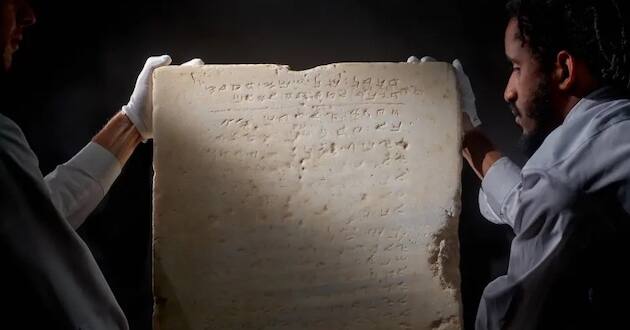A remarkably rare stone tablet bearing the Ten Commandments is poised to fetch up to $2 million at a Sotheby’s auction in December. The 115-pound artifact, dating to the Late Roman-Byzantine period, stands as a potent testament to the enduring roots of Judeo-Christian faith.
The Ten Commandments, a cornerstone of morality and ethics, are described in the Book of Exodus as the divine laws handed down to Moses on Mount Sinai. While details and dates of Exodus remain a topic of scholarly debate, this tablet offers a tangible link to the ancient practice of inscribing these sacred laws.
Sotheby’s senior Judaica specialist Sharon Liberman Mintz hailed the relic as a “one-of-a-kind find,” underscoring its profound historical and religious significance. “We understood how powerful the object was,” Mintz said, “and we were really thrilled to be able to offer it for sale to the public.”
READ: Sotheby’s auctions off ancient Bible
The tablet’s journey began with its 1913 discovery during a railway excavation along Israel’s southern coast. It subsequently changed hands to an Arab man, who unwittingly used the biblically significant stone as a paving slab at his home. For years, the ancient inscription lay exposed, trodden by passersby until its religious importance was recognized by archaeologist Jacob Kaplan in 1943.
Kaplan’s painstaking work revealed the tablet to be inscribed with nine of the traditional Ten Commandments, alongside an intriguing adaptation. The Samaritans, an ancient Israelite sect, replaced the prohibition on taking the Lord’s name in vain with a directive to “raise up a temple” on Mount Gerizim, a holy site in ancient Samaria located in modern-day Israel.
This remarkable tablet is not only a vastly important historical artifact but a tangible link to the beliefs that helped shape Western civilization,” he said. “To encounter this shared piece of cultural heritage is to journey through millennia and connect with cultures and faiths told through one of humanity’s earliest and most enduring moral codes.”
–Dwight Widaman | Metro Voice
